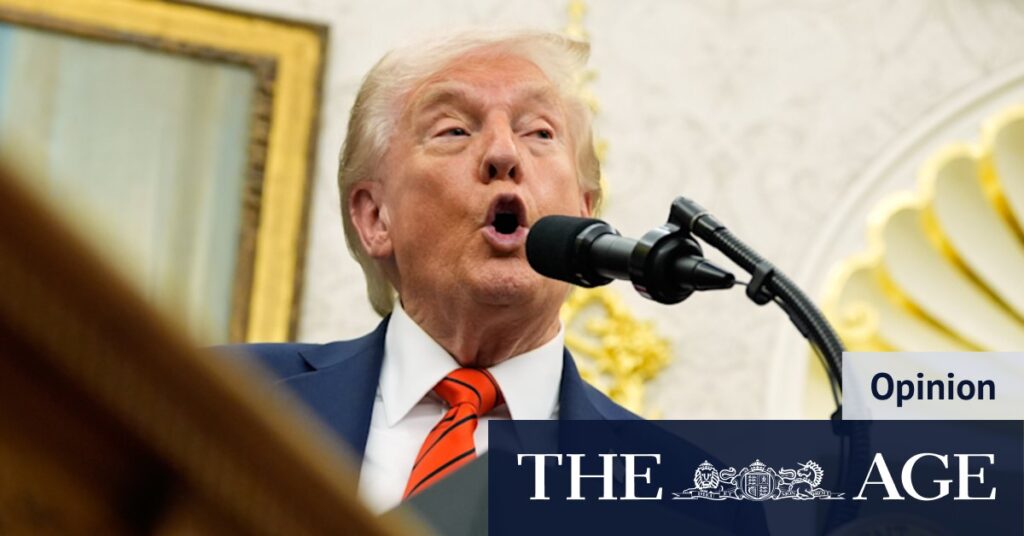
China’s abrupt escalation in trade hostilities with the United States last week has raised eyebrows globally, as Beijing announced tighter export controls on rare earths and products containing even trace amounts of these critical materials. This move was seen as a provocation, leading former President Donald Trump to threaten a 100% tariff on all Chinese exports to the US, along with a ban on critical software exports and potential restrictions on aircraft parts.
In addition to these measures, China also introduced new fees for US ships docking at its ports and launched an antitrust investigation into Qualcomm, the US chipmaker with significant exposure to the Chinese market. China’s official explanation for reigniting trade tensions, which had been dormant since a truce was agreed upon in Geneva in May, was a response to new American measures targeting China. These included additions to the US blacklist of Chinese companies and tighter restrictions on China’s access to advanced semiconductors.
Background and Context
The escalation comes at a time when the US has also begun imposing hefty port charges on Chinese ships delivering exports to America, contributing to the tit-for-tat nature of these actions. Meanwhile, comments from US Treasury Secretary Scott Bessent, following a US bailout of Argentina, have further complicated matters. Bessent remarked that Argentina’s President Javier Milei, a close ally of Trump, was committed to reducing China’s influence in Argentina, a move that has not sat well with Beijing.
China has a significant financial stake in Argentina, with an $18 billion swap line and substantial purchases of Argentinian soybeans. This has frustrated US farmers, who have yet to sell their produce to China this season, despite it being their largest market in previous years.
Strategic Timing and Implications
Perhaps more significant than the immediate details of the trade dispute is the upcoming meeting between Trump and China’s President Xi Jinping at the Asia-Pacific Economic Cooperation summit in South Korea, scheduled for November 1. Notably, Trump’s threatened tariff increase would not take effect until after this meeting, suggesting that both sides are using these measures as leverage in the negotiations.
“Don’t worry about China, it will all be fine! Highly respected President Xi just had a bad moment.” – Donald Trump on Truth Social
China’s control over the rare earths market, which includes 70% of mining, 90% of processing, and 80% of battery cell production globally, gives it a powerful hand in these negotiations. Rare earths are crucial for various industries, including defense, aviation, and electronics, making China’s export controls a significant strategic move.
Economic and Market Reactions
The financial markets reacted strongly to these developments. The US stock market saw a significant downturn, with the tech-heavy Nasdaq falling 3.6%, and major tech companies like Nvidia and AMD experiencing substantial losses. Oil prices, the US dollar, and bond yields also fell, while the cryptocurrency market initially lost nearly $500 billion in value before recovering some losses over the weekend.
Despite Trump’s belief that China’s economy is vulnerable to US sanctions, China’s exports have remained robust, increasing by 5.9% overall, despite a 15% drop in exports to the US. Meanwhile, China’s ability to boost domestic economic activity remains an untapped resource.
Political and Strategic Considerations
China is aware of the political pressures facing Trump, especially with the upcoming midterm elections. The US economy is showing signs of strain under the tariffs, with rising inflation and unemployment. The government shutdown and threats of mass layoffs add to the domestic challenges Trump faces.
Conversely, Xi Jinping’s position is more secure, allowing him to leverage China’s economic strengths without immediate political repercussions. This dynamic gives China a strategic advantage in the ongoing trade negotiations.
Looking Ahead
As the first face-to-face meeting between Trump and Xi in six years approaches, both leaders are maneuvering for leverage. Trump continues to tout the strength of the US economy and the impact of his tariffs, while Xi demonstrates China’s ability to target key US industries precisely and effectively.
“Xi is saying ‘back off,’ honor the principles behind the Geneva agreement and do a fair deal.”
While Trump’s rhetoric suggests a willingness to negotiate, the financial markets and political landscape will play crucial roles in shaping the outcomes of these discussions. Investors are watching closely, with the potential for significant market movements based on the perceived likelihood of a resolution.
The Business Briefing newsletter delivers major stories, exclusive coverage, and expert opinion. Sign up to get it every weekday morning.







